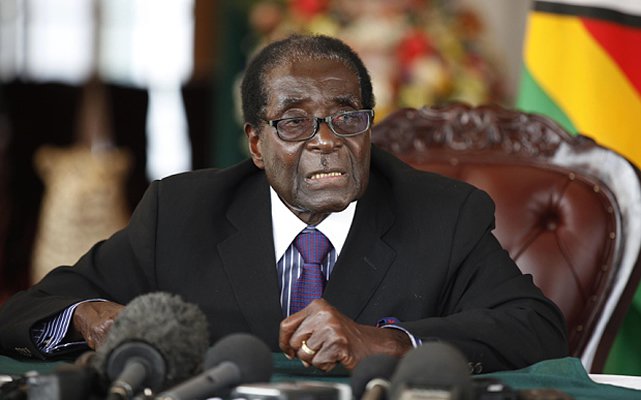Chief Justice Bill gazetted


President Mugabe
Zvamaida Murwira Senior Reporter
Government yesterday gazetted Constitutional Amendment Bill (Number 1) which seeks to change the supreme law by providing that the President appoints the Chief Justice, Deputy Chief Justice and Judge President of the High Court.
The Bill follows weeks of debate on the provision in the Constitution which took away the President’s powers to appoint people to the three crucial positions.
The Constitution provides that the President appoints the Chief Justice from a list given to him by the Judicial Service Commission (JSC).
Also read:
- Justice Hungwe’s judgment on judges’ public interviews
- New twist to CJ succession
- Chief Justice interviews suspended
- Bill to amend Constitution on cards
In compiling the list for appointment, the JSC advertises for the positions, inviting interested people to apply before conducting public interviews.
The proposed law to be known as Constitution of Zimbabwe Amendment Bill (Number 1) is contained in an Extraordinary Government Gazette published yesterday.
The proposed amendments will substitute Section 180 of the Constitution, which provides for the appointment of judges.
Clause Six of the Bill amends Section 180 of the present Constitution by providing that the President’s choice of Chief Justice, Deputy Chief Justice and Judge President of the High Court be final, should there be differences of choices between his nominee and those recommended by JSC.
“The Chief Justice, Deputy Chief Justice or Judge of the High Court shall be appointed by the President after consultation with the Judicial Service Commission,” reads Clause 6 (2) of the Bill.
“If the appointment of a Chief Justice, Deputy Chief Justice or Judge President of the High Court is not consistent with any recommendation made by the JSC in terms of subsection (2), the President shall cause the Senate to be informed as soon as is practicable. Provided
that, for the avoidance of doubt, it is declared that the decision of the President as to such appointment shall be final.”
The appointment procedures for all judges will remain as it is in the current Constitution.
Presently, appointment of judges is done after the JSC advertises for the positions, invite the President and the public to make nominations and conduct public interviews of prospective candidates.
The JSC would then prepare a list of three qualified persons as nominees before submitting their names to the President, who is obliged to appoint one person of the nominees to the office concerned.
If the President considered that none of the persons on the list submitted to him or her is suitable, he or she would request the JSC to submit another list, whereupon he or she would appoint the new office holder.
Clause Five of the Bill makes another amendment to the Constitution by providing that the Labour Court and Administrative Court be subordinate to the High Court.
“In conformity with Section 188 (4) of the Constitution, the salaries, allowances and other benefits of judges of the Labour Court and Administrative Court holding or acting in office as such on the date of commencement of this Act shall not be reduced,” reads Clause Five (2) of the Bill.
The Constitutional Amendment Bill is set to take three months before it is tabled before Parliament for debate.
It is the appointment of Chief Justice, Deputy Chief Justice and High Court Judge President that is expected to put to rest debate and stand-off that appeared to exist between JSC and the Executive.
The recent stand-off emanated from how Chief Justice Godfrey Chidyausiku should be replaced, as he is set to retire in February next year after attaining the mandatory retirement age of 70 years.
The JSC proceeded to hold interviews in terms of the present Constitution last week, despite a High Court order issued by Justice Charles Hungwe interdicting it from conducting the interviews as the Executive had indicated its intention to amend the Constitution.
This was after a University of Zimbabwe 4th year law student, Mr Romeo Zibani, challenged the interviewing process, arguing that it was flawed.
The Constitutional Amendment Bill is expected to sail through with little hassle as Zanu-PF commands more than two-thirds majority both in the National Assembly and Senate.








Comments